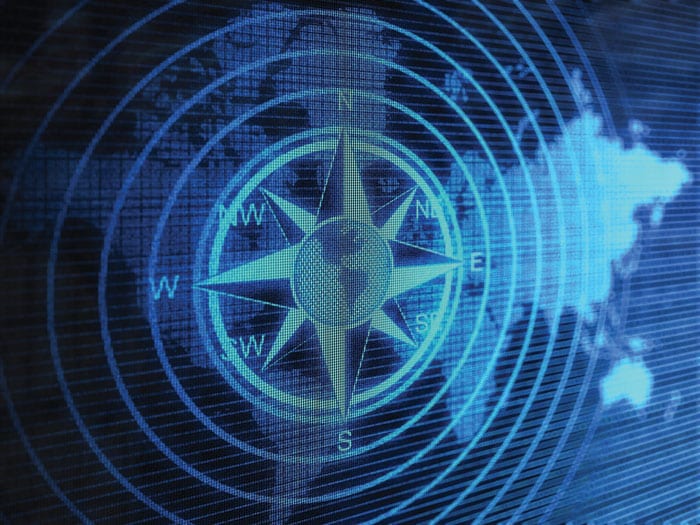 alengo/Getty Images
alengo/Getty Images Natalie Wynn, known by her YouTube channel name as ContraPoints, is an internet personality as intelligent as she is hilarious. A few times a year (if we’re lucky), Wynn publishes a feature-film length video essay online, impressively produced with costumes and sets, on a controversial topic she — and presumably her audience — is obsessed with. Such topics have included envy, addiction, J.K. Rowling, beauty and capitalism. But one ContraPoints video I am routinely drawn back to above the others is dedicated to “the west,” more specifically to the term itself, which is often used but seldom understood. As a politically involved new immigrant to Israel, frequently immersed in conversations surrounding Jewish identity, religion, governance and conflict, the notion of “the west” is something I am confronted with daily. And since Israel’s recent election, it feels like something I read about on an hourly basis.
But what does the term really mean, and what are its implications — especially when talking about Israel?
“It’s easy to take for granted that there is a historically continuous, clearly defined thing called western civilization that starts in ancient Athens and flourishes in our own era,” says Wynn. She continues: “But this is really just a story constructed retrospectively by modern people for particular purposes.” In other words, one’s own definition of “the west” usually depends on how they themselves would like it to be characterized depending on their political ideology. For example, a right-wing populist may think of the west as civilizations made up predominantly of white Christians and will use the term as a bludgeon against immigrants and refugees who come from non-white, non-Christian countries. An academic might think of the west as any society that continues Greco-Roman traditions of democracy, whereas a philosopher might think of the west as that which rises from a specifically secular observation of the world. A classical liberal might think the west is comprised of societies that institutionally protect minorities both ethnic and religious, whereas a leftist may regard the west primarily as a vehicle of colonialism and exploitation.
The truth is, that all of these definitions and none of these definitions are correct because the notion of the west is malleable and subjective. Even ideas that come from irrefutably western places like 19th-century Germany or France are often in stark contradiction with each other: communism vs. capitalism, civic vs. ethnic nationalism, democracy vs. fascism. Think of it this way: It can be argued that Adolf Hitler didn’t necessarily betray western ideals by killing six million Jews, considering that the reactionary nationalism that gave birth to the Third Reich was fundamentally a child of western thinking. Karl Marx didn’t betray the values of the west by advocating for a worker’s revolution against the propertied class, because Marx’s ideas were rooted in western academic tradition. Both the neo-Nazi and the progressive professor are correct in their characterizations of western civilization because it has, at one point or another, championed their own worldview.
Now, zoom into Israel, year 2023. “The west” is often the start of an argument between the Jewish state’s many factions.
First, the west is sometimes portrayed by those who fall on the more religious and right-wing side of the spectrum as a boogeyman that has come to chip away at the Jewish identity of both the individual Israeli and the State of Israel, an agent of assimilation, the Hellenistic force permeating Judea in our modern era. Rabbi Yishai Fleisher, a Hebron local who advocates for continued Jewish settlement in the West Bank and a more traditionally religious society within Israel, told The Daily Beast, “I know how to handle problems in a Semitic manner, not necessarily in a western manner, and to understand that sometimes western ideas — including Jewish leftist ideas — are actually colonial ideas.” He continues: “For example, the two-state solution: That is absolutely a western, colonial model.”
Rabbi Fleisher is a supporter of Rabbi Yehuda HaKohen, a charismatic speaker gaining traction in young Diaspora circles for advocating continued Jewish settlement from the river to the sea and the further entrenchment of spirituality within Israel proper. After Israel’s election in November, HaKohen decried “Israel’s westernized Liberal-Zionist ruling class that is primarily concerned with the material well-being of the Jewish people (security, economy, diplomacy, etc.) but maintains a very European sense of national identity while remaining largely estranged from the ancient values and traditions of Am Yisrael.”
These characters advocate for policies that are considered ultra-nationalist, yet rail against the west in presenting their ideas. In contrast, many both in Israel and the United States support the very same proposals but make use of “the west” as a positive, and not a negative. Some argue that the settlements of the West Bank are a bulwark of the west against an Islamic caliphate stretching all the way from Tel Aviv to Kabul. And on social issues, conservative politicians in the United States cite Jewish tradition as a foundation of the west, which in their minds rests upon the “Judeo-Christian values” found in the Hebrew Bible. Politicians on both the left and right may justify their support for Israel because of the “shared values” between Israel and the United States and their “shared vision for democracy,” as the State Department notes.
On the other side of the aisle, “the west” is utilized just as often. The Israeli mainstream left, which opposes right-wing policies in the West Bank and favors secularism over Halakha in the public square, marches toward a vision of Israel that is a European-style western country, a “Vienna on the Mediterranean,” as Theodor Herzl envisioned it. After the most recent election, this once dominant Israeli vision appears to be slipping away. In contrast, those on the more fringe-left in Israel and in the Diaspora regard Israel as already the embodiment of the west, only proven by the most recent elections. In their (often antisemitic) view, Zionism is the poster child for the west, an instrument of colonialism and dispossession. Palestinian intellectual Edward Said famously wrote of Zionism in 1979: “There is an unmistakable coincidence between the experiences of Arab Palestinians at the hands of Zionism and the experiences of those black, yellow, and brown people who were described as inferior and subhuman by 19th-century imperialists.”
If one thing can be learned from all these observations, it’s that “the west” is no longer a useful term in discussions about Israel.
If one thing can be learned from all these observations, it’s that “the west” is no longer a useful term in discussions about Israel. The idea is too subjective, too open to interpretation, and too revealing of political priors that might as well be said without needless obfuscations. If the idea of “the west” is so flimsy that it can be used to buttress anyone and everyone’s argument, it becomes tedious. If you want one-state or two-state, say it. If you want the Rabbinate in charge of more state affairs or the start of civil marriage and the expansion of public transportation on Shabbat, say it. There is no need to bring up a term with a definition hardly ever agreed upon.
At the end of her video essay, Wynn provocatively proposes the abolition of the concept of the west in its entirety. “We should get rid of it altogether,” she states forthrightly, “and adopt a more cosmopolitan understanding of ourselves and acknowledge that the world is too complicated to reduce to simple us and them binaries.” Living in Israel for only four months has led me to agree with her.
Blake Flayton is the New Media Director and columnist for the Jewish Journal.























 More news and opinions than at a Shabbat dinner, right in your inbox.
More news and opinions than at a Shabbat dinner, right in your inbox.